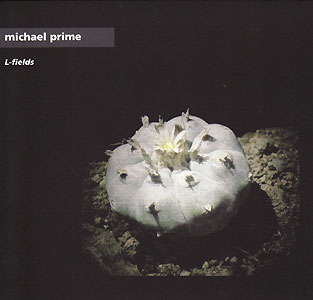
 |
|
 |
Format: CD Label & Cat.Number: Sonoris SON-08 Release Year: 2000 Note: bioelectrical recordings of hallucinogenic plants & mushrooms (Cannabis, Amanita Muscaria, Peyote); great works rec. 1997-1999, back in stock, better priced now !
Price (incl. 19% VAT): €12.00 Warning: Currently we do not have this album in stock!
More Info2000er Veröffentlichung des "masters of microscopic recording" – auf diesem faszinierenden Tonträger benutzt PRIME sounds die von bioelektrischen Aufnahmen von lebenden Pflanzen und Pilzen abgeleitet wurden, die wiederum angereichert wurden mit Umgebungsgeräuschen desselben Ortes. PRIME setzt hier halluzinogene Pflanzen wegen ihres besonderen Status für Menschen ein: Also, hört Euch die Sounds von CANNABIS SATIVA, AMANITA MUSCARIA und LOPHOPHORA WILLIAMSII (Peyote) an, SIE sind die Interpreten auf dieser CD! PRIME schafft es wieder, eine Soundwelt hörbar zu machen, die für Alltagsohren nicht hörbar ist.. wieder ein grandioses Album auf SONORIS."Some records will please you, others will disturb or mystify you. And then some rare specimens will extend your conception of life. Michael Prime's L-Fields is of the latter category. The source material on L-Fields consists of bioelectrical recordings of hallucinogenic plants. Yep. Prime records the fluctuations of the electric guitar field of a plant, fluctuations that trigger an oscillator. Prime later compresses, overlays, and integrates sounds from the surrounding environment to the signal and voilà: through a work aesthetically close to electroacoustics, the listener is invited to hear a plant live its life! L-Fields delivers three experiments of this type (between 16 and 21 minutes each) with three different species: Cannabis sativa, Amanita muscaria, and Lophophora williamsii. Why all hallucinogenic plants? Because they had such an influence on the music of the last four decades it is about time you hear their music. The result is a fascinating organic music, out of this world and yet at the heart of our world. Composer David Dunn made some in situ environmental recordings in the 1970s-1980s; he used environments like the Grand Canyon to spatialize his music and instructed the musicians to interact with manifestations from the ecosystem (like nearby birds, for instance). But Michael Prime goes beyond this technique: instead of modifying the music in order to get a reaction from the environment, he modifies the environment (accentuating ambient light, touching the plant, etc.) to stimulate modifications in the internal "music" of plants. Simply fascinating. The four-and-a-half-stars rating goes as much to the context of artistic production at play than to the result itself, since one cannot separate the two when evaluating this album." [François Couture, All Music Guide] www.sonoris.org |
| © 2007 Drone Records | | Celler Strasse 33, 28205 Bremen, Germany | Privacy and cookies policy | Impressum / Allgemeine Geschaftsbedingungen / Haftungsausschluss | Links to the scene |